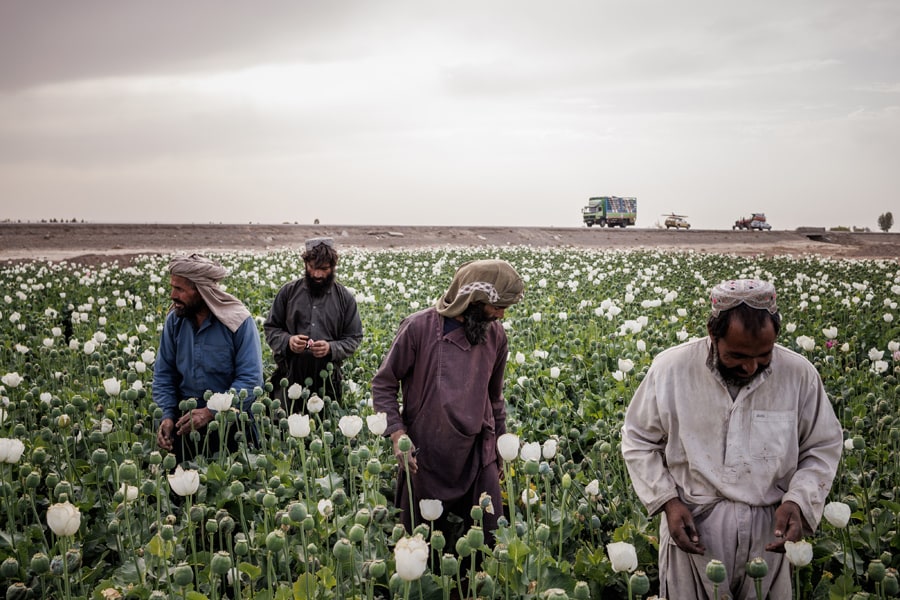
In hard times, Afghan farmers are turning to Opium for security
Opium can be kept for longer and needs far less irrigation than pomegranates, and selling and distributing the illicit substance often relies on a network of smugglers inside the country, so closed borders are no longer a problem
 Farmers harvest opium from poppies in Maiwand, Afghanistan, Nov. 7, 2021. The war’s intense conclusion and a drought combined to wipe out the famous Afghan pomegranate harvest in Kandahar Province, during a devastating national economic crisis. (Jim Huylebroek/The New York Times)
Farmers harvest opium from poppies in Maiwand, Afghanistan, Nov. 7, 2021. The war’s intense conclusion and a drought combined to wipe out the famous Afghan pomegranate harvest in Kandahar Province, during a devastating national economic crisis. (Jim Huylebroek/The New York Times)
ARGHANDAB, Afghanistan — Abdul Hamid’s pomegranate trees were scarred from bullets and shrapnel. The river was low and the land dry. There was no profit anymore from the fruit that made his district in southern Afghanistan so renowned for something other than war.
So this month, Hamid’s field hands began destroying his 800 or so pomegranate trees in Kandahar’s Arghandab district. He looked on as the century-old orchard, farmed for generations by his family, was turned into a graveyard of twisted trunks, discarded fruit and churned earth.
“There’s no water, no good crops,” Hamid, 80, said, the steady burp of a chain saw drowning out his bleak assessment.
The lack of rain and diminishing well water had made it nearly impossible to irrigate the trees year-round, leaving portions of this year’s harvest burned from dehydration. The Taliban’s military campaign over the past year didn’t help.
The decision to destroy his entire orchard is one that Hamid and many other Afghans farmers in the district are making to earn an income after a series of devastating harvest seasons. A crippling drought, financial hardships and unpredictable border closures at the war’s end have sent them scrambling for the security of the region’s most reliable economic engine: growing opium poppy.
©2019 New York Times News Service







